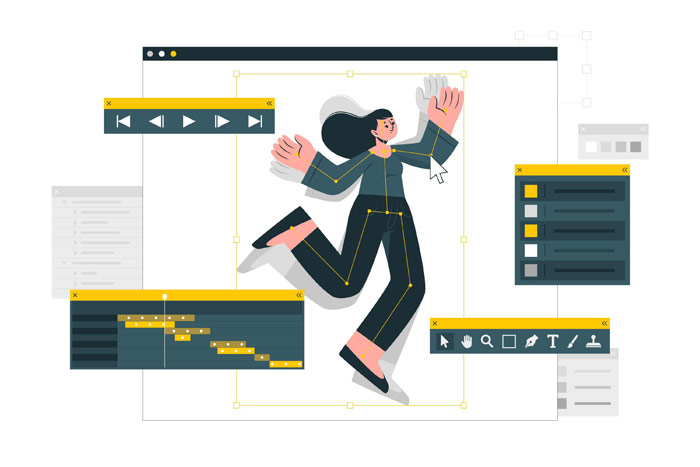Personalized Educational Content in India: Revolutionizing Learning for Every Student

In the digital age, the traditional classroom model is evolving rapidly. One of the most exciting developments in the world of education is the rise of personalized educational content. In India, a country with a rich history of diverse learning methods and an expanding digital infrastructure, this shift is gaining significant momentum. Personalized learning adapts educational content to suit the unique needs, preferences, and learning paces of individual students, making it a game-changer for the Indian education system.
What is Personalized Educational Content?
Personalized educational content refers to learning materials that are tailored to the specific requirements of each learner. Unlike traditional one-size-fits-all teaching methods, personalized content accounts for the individual strengths, weaknesses, and interests of students, allowing them to progress at their own pace. This can include everything from digital textbooks and online tutorials to adaptive learning software that modifies the difficulty level based on the student’s performance.
The Importance of Personalized Learning in India
India’s education system has long faced challenges such as overcrowded classrooms, a rigid curriculum, and a lack of resources in rural and underserved areas. Personalized learning offers a potential solution to these issues by:
- Catering to Diverse Learning Styles: India is home to a wide range of cultural, linguistic, and socioeconomic backgrounds. Personalized content can cater to different learning styles, whether visual, auditory, or kinesthetic, ensuring that every student can learn in the way that suits them best.
- Bridging the Gap Between Rural and Urban Education: With the increasing availability of smartphones and affordable internet in rural areas, personalized educational content can reach students even in the remotest corners of the country. This has the potential to bridge the education gap between urban and rural students.
- Fostering Self-Directed Learning: Personalized content encourages students to take control of their learning. With interactive lessons and real-time feedback, learners can explore topics of interest and master them at their own pace, promoting a deeper understanding of subjects.
- Enhancing Academic Performance: By adapting to the individual needs of each student, personalized learning can help students who might otherwise fall behind. It provides targeted support, whether a student needs additional help in mathematics or more challenging material in science.
Key Trends in Personalized Education in India
The personalized learning trend in India is driven by several key factors:
- EdTech Platforms: A variety of Indian EdTech platforms, such as BYJU’s, Vedantu, and Toppr, have made personalized learning more accessible. These platforms use artificial intelligence (AI) and machine learning algorithms to create custom learning paths for students, helping them learn more effectively and efficiently.
- Adaptive Learning Tools: Adaptive learning technology, which adjusts the difficulty of content based on student performance, is becoming more prevalent in India. Platforms like Khan Academy and Duolingo use these tools to offer personalized learning experiences for millions of students.
- Localized Content: Recognizing the linguistic diversity of India, many EdTech companies are developing content in multiple languages, allowing students from different regions to learn in their native tongue. This helps in overcoming language barriers and makes education more inclusive.
- Gamification and Interactive Learning: Many personalized educational platforms in India are incorporating gamification into their content. Interactive games, quizzes, and challenges make learning fun and engaging while promoting problem-solving and critical thinking skills.
- Smart Devices in Education: The growing availability of smartphones, tablets, and affordable internet has led to a surge in mobile learning. Students can now access personalized content anytime and anywhere, making education more flexible and accessible.
Benefits of Personalized Educational Content in India
- Improved Student Engagement: With personalized content, students can engage with learning materials that resonate with their interests and learning styles. This engagement leads to better retention of information and a more enjoyable learning experience.
- Increased Motivation: When students experience progress and see the results of their hard work, their motivation to continue learning grows. Personalized learning fosters a sense of achievement and boosts self-esteem.
- Support for Diverse Learners: Students with different learning needs, such as those with disabilities or those who struggle in specific subjects, benefit greatly from personalized educational content. With targeted resources, they can receive the additional support they need.
- Data-Driven Insights for Educators: Teachers can use data generated from personalized learning platforms to track student progress and identify areas where they need additional support. This data-driven approach enables more effective teaching and timely intervention.
Challenges to Implementing Personalized Learning in India
While personalized learning holds tremendous potential, there are still challenges to overcome:
- Access to Technology: Despite growing internet penetration, many students, especially in rural areas, still lack access to smartphones, computers, and reliable internet connections. Ensuring equitable access to technology is a significant hurdle.
- Teacher Training: Personalized learning requires teachers to be proficient in using digital tools and understanding how to incorporate them into their teaching practices. Ongoing professional development is essential to equip teachers with the skills they need.
- Affordability: While many EdTech platforms offer affordable subscription models, the cost may still be a barrier for some families. Making personalized educational content affordable for all remains a challenge.
- Data Privacy and Security: As personalized learning relies heavily on data collection, ensuring the privacy and security of student data is crucial. Stricter regulations and transparency in data handling will be necessary to build trust.
The Future of Personalized Education in India
The future of personalized educational content in India looks promising. With the rapid advancement of technology, the growing number of EdTech startups, and the government’s push towards digital education, the country is well-positioned to lead in this field.
Personalized learning could play a central role in shaping India’s education system, making it more inclusive, adaptable, and accessible. By empowering students to take control of their education, personalized content can unlock their full potential and help them succeed in an increasingly competitive world.
As India continues to invest in technology, infrastructure, and educational reforms, we can expect personalized learning to become an integral part of the classroom experience, helping to shape the next generation of learners into curious, confident, and lifelong learners.
Conclusion
Personalized educational content in India is not just a trend—it’s a transformative shift that promises to make education more effective, engaging, and accessible. With the right tools, training, and infrastructure, personalized learning can overcome the challenges of a one-size-fits-all education system and ensure that every student has the opportunity to succeed. The future of education in India is undoubtedly personalized, and we are on the cusp of a revolution in how students learn and thrive.

